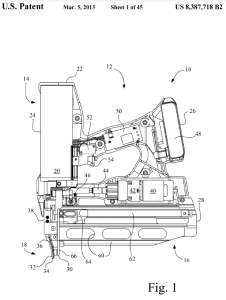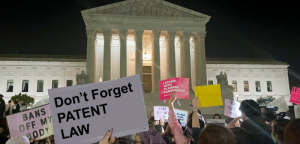We have seen lots of ITC action recently. In the new Koki v. ITC decision, the Federal Circuit found that the accused infringer Koki lacked Constitutional standing to bring the appeal based upon a binding promise not to sue submitted by the patentee Kyocera.
As I discuss at the end of this post, although Koki is the nominal loser, the company substantially advanced its position on appeal because Kyocera was forced to declare (and then clarify) its promise in order to obtain dismissal.
To continue reading, become a Patently-O member. Already a member? Simply log in to access the full post.


